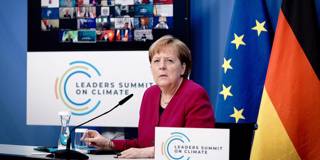Crises such as climate change and COVID-19 require multilateral responses, and a critical mass of countries can alter the course of events, for better or worse. Despite current geopolitical tensions, leaders must not lose sight of major global threats – and of the need to find common ground.
MADRID – In early 1981, a few days before Jimmy Carter handed over the US presidency to Ronald Reagan, a short story on page 13 of The New YorkTimes mentioned a report from the Council on Environmental Quality. This body, tasked with advising the US president, sounded the alarm about the link between the increasing atmospheric concentration of carbon dioxide and global warming. “Efforts should be begun immediately to develop and examine alternative global energy futures,” the report stated, also emphasizing that “international collaboration in assessing the CO2 problem is particularly important.”
Despite this and many other warnings dating back to the 1960s, Reagan distanced himself from the Carter administration’s environmentalist agenda. In a symbolic gesture, the new president even removed the solar panels that his predecessor had installed on the White House.
Perhaps unsurprisingly, therefore, intergovernmental cooperation on climate change only took its first concrete steps in the late 1980s. And not until the 2015 Paris agreement did the world finally establish a binding framework mobilizing all countries in a determined quest to mitigate global warming.

MADRID – In early 1981, a few days before Jimmy Carter handed over the US presidency to Ronald Reagan, a short story on page 13 of The New YorkTimes mentioned a report from the Council on Environmental Quality. This body, tasked with advising the US president, sounded the alarm about the link between the increasing atmospheric concentration of carbon dioxide and global warming. “Efforts should be begun immediately to develop and examine alternative global energy futures,” the report stated, also emphasizing that “international collaboration in assessing the CO2 problem is particularly important.”
Despite this and many other warnings dating back to the 1960s, Reagan distanced himself from the Carter administration’s environmentalist agenda. In a symbolic gesture, the new president even removed the solar panels that his predecessor had installed on the White House.
Perhaps unsurprisingly, therefore, intergovernmental cooperation on climate change only took its first concrete steps in the late 1980s. And not until the 2015 Paris agreement did the world finally establish a binding framework mobilizing all countries in a determined quest to mitigate global warming.